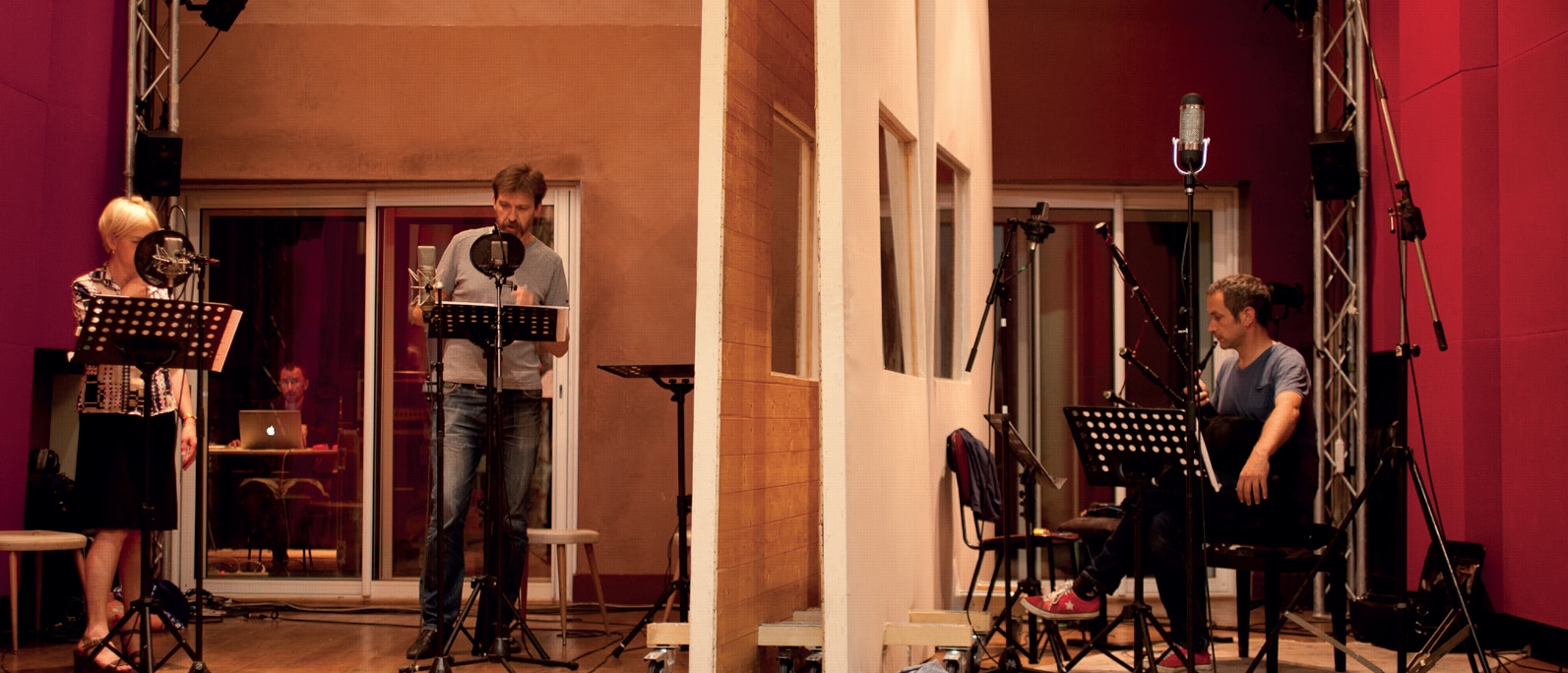VOX
Everything seems to oppose classical voices and bagpipes : erudite versus traditional, human versus primal, etc. Yet, things might not be that simple. Maybe the sound of the bagpipe can be organic, maybe it can blend with the voice, maybe the voice
can be a powerful, outside instrument, maybe the bagpipe can whisper. Then, could there be anything better than singing and bagpiping together ?
In 2011, Erwan invited Beñat Achiary to improvise a bagpipe and voice duo for Urban Pipes II. Erwan was fascinated by Beñat’s ability to blend his voice into the drones and chanter. The bagpipe became organic, the voice turned primitive. Wishing to pursue working with singers, he has commissioned music written for soprano, baritone and bagpipe.
The bagpipe comprises a melody pipe called the chanter, 2 ‘tenor’ drones one octave below and a ‘bass’ drone two octaves below. Voices have been chosen for their best possible integration into the bagpipe pitch range from bass drone to chanter. This trio is very compact in the part of the spectrum where the voices are ‘in’ the bagpipe tone range, and two privileged dialogues take place: between drone and baritone and between chanter and soprano. With its seemingly simple visual appearance –two singers and an instrument gathered in a cluster– this trio heralds multiple musical possibilities.
Erwan has chosen four composers of very different origins and aestheticisms, hence different musical expressions. Each of them is already well acquainted and at ease with voices, but they are all ‘virgin’ as far as bagpipes go. Their perception of this instrument is totally detached from its origin, it only relates to the diversity of sounds that the bagpipe can produce.
Calling for pieces featuring voices also means opening up the possibility of text and meaning, which is a new situation for this instrument as well as a new source of curiosity. What kind of musical writing will the composers associate with this unusual orchestra?

